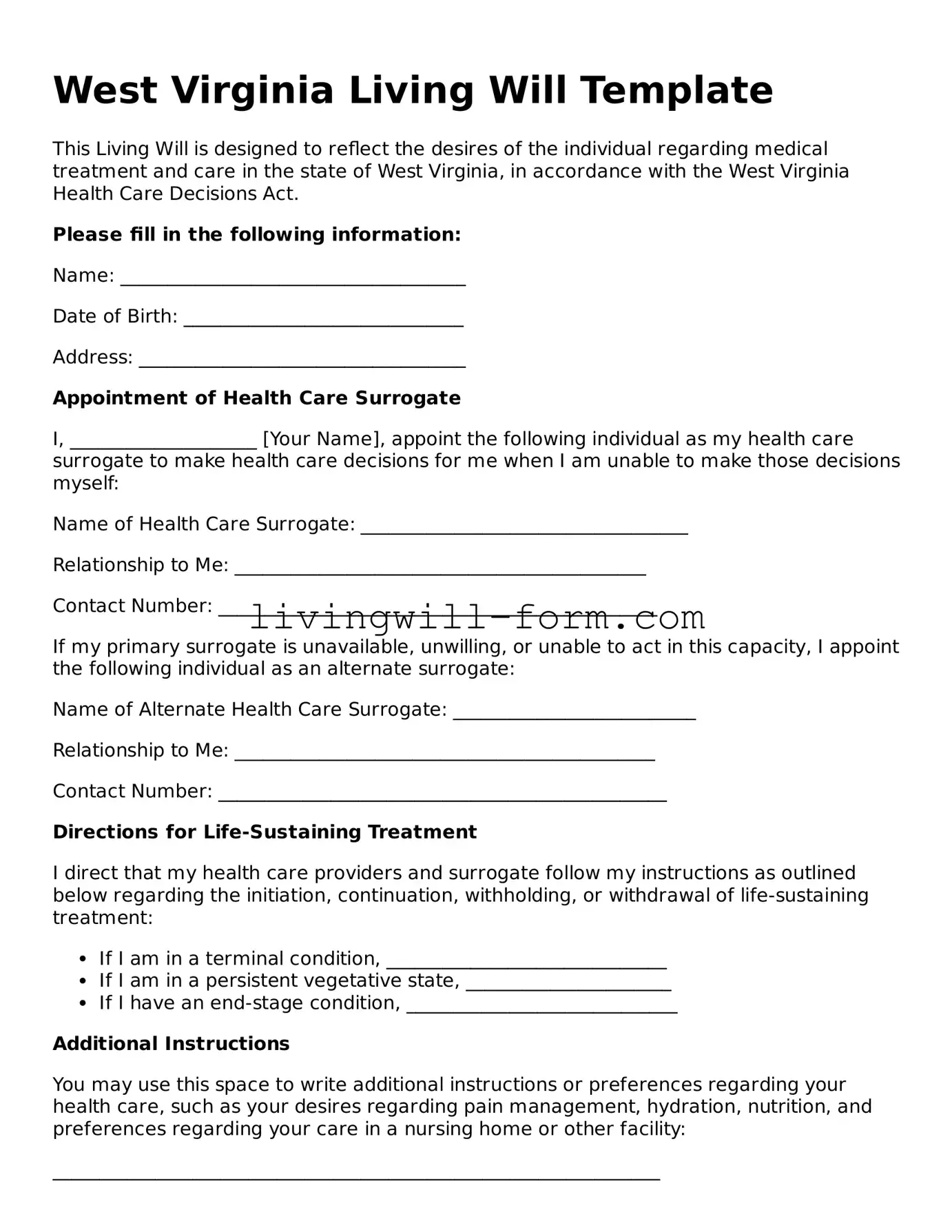West Virginia Living Will Template
This Living Will is designed to reflect the desires of the individual regarding medical treatment and care in the state of West Virginia, in accordance with the West Virginia Health Care Decisions Act.
Please fill in the following information:
Name: _____________________________________
Date of Birth: ______________________________
Address: ___________________________________
Appointment of Health Care Surrogate
I, ____________________ [Your Name], appoint the following individual as my health care surrogate to make health care decisions for me when I am unable to make those decisions myself:
Name of Health Care Surrogate: ___________________________________
Relationship to Me: ____________________________________________
Contact Number: _______________________________________________
If my primary surrogate is unavailable, unwilling, or unable to act in this capacity, I appoint the following individual as an alternate surrogate:
Name of Alternate Health Care Surrogate: __________________________
Relationship to Me: _____________________________________________
Contact Number: ________________________________________________
Directions for Life-Sustaining Treatment
I direct that my health care providers and surrogate follow my instructions as outlined below regarding the initiation, continuation, withholding, or withdrawal of life-sustaining treatment:
- If I am in a terminal condition, ______________________________
- If I am in a persistent vegetative state, ______________________
- If I have an end-stage condition, _____________________________
Additional Instructions
You may use this space to write additional instructions or preferences regarding your health care, such as your desires regarding pain management, hydration, nutrition, and preferences regarding your care in a nursing home or other facility:
_________________________________________________________________
_________________________________________________________________
_________________________________________________________________
Organ and Tissue Donation
I indicate my desire regarding organ and tissue donation as follows:
- I do not wish to donate any organs or tissues.
- I wish to donate only the following organs or tissues: _____________
- I wish to donate any needed organs or tissues.
Signature
I understand that I can revoke or change this document at any time. I am aware that I should inform my physician and health care surrogate of any changes to my living will.
Signature: ___________________________ Date: _________________
Witness: _____________________________ Date: _________________
Notarization (If Required)
This document was acknowledged before me on (date) ___________ by (name of principal) _____________________________________.
_____________________________________
(Seal) Notary Public
My commission expires: _______________

